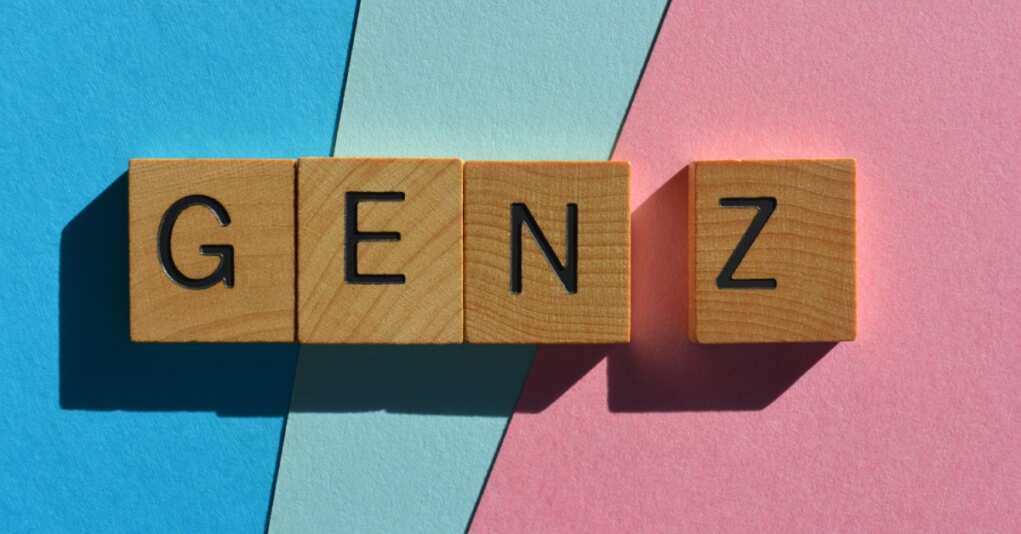Gen Z’s Rightward Shift: Is Kamala Harris Totally Screwed?

Vice President Kamala Harris’s campaign is all in on pushing the “brat” and “coconut” memes, thinking these will somehow charm the 41 million Gen Z voters eligible to hit the polls this November.
Trump, on the other hand, is targeting young men with a strategic mix of podcast appearances and TikTok collabs, trying to scoop up those swing voters. It’s a tactic that’s been working wonders for far-right movements worldwide. Young men have been powering up right-wing parties from Argentina to South Korea to Germany.
In Argentina, Gen Z men helped libertarian Javier Milei shake up the political landscape in 2021. In South Korea, young men were the backbone of conservative Yoon Suk Yeol’s presidential win in 2022. And just last Sunday, Germany’s far-right Alternative for Germany (AfD) party scored its best result since the Nazi era, thanks in no small part to young male voters.
This wave of right-wing youth politics is spreading across China, the UK, France, Portugal, Tunisia, Belgium, and Finland. In the U.S., it’s caught the eye of the Republican Party’s most prominent figure.
Trump has been laser-focused on winning over young men. He’s appeared on podcasts like Theo Von’s and Lex Fridman’s, live-streamed with Adin Ross, made TikToks with Logan and Jake Paul, and even put his Gen Z son Barron and his buddy Bo Loudon in charge of his social media outreach.
Trump might even be eyeing a spot on the Joe Rogan Experience, the most-listened-to podcast in America, with 11 million listeners per episode. Some are even betting on whether he’ll actually do it.
“It’s a smart move by Trump’s campaign to meet young men where they are,” says Melissa Deckman, CEO of PRRI and author of “The Politics of Gen Z: How the Youngest Voters Will Shape Our Democracy.” “They’re more likely to watch Joe Rogan or Logan Paul or hang out at MMA events.”
Mason Morgan, executive director of Run Gen Z, adds, “The winning candidate is going to be the one that connects with Gen Z where they actually spend their time.”
Polls show that Gen Z isn’t as predictably liberal as some might expect. A SurveyUSA poll earlier this month had Trump leading Harris by four points among Gen Z voters, with 50% of voters aged 18 to 34 backing Trump and 46% supporting Harris. Gallup finds a significant shift to conservatism, especially among young men.
Both the Gallup and the Walton Family Foundation found Gen Z teens are twice as likely to lean conservative compared to their millennial predecessors. While the conservative teens still make up a small group—14%—this shift marks a significant generational change. Two decades ago, only 7% of millennials considered themselves more conservative than their parents.
But let’s not kid ourselves—this isn’t some sweeping conservative revolution among Gen Z. It’s more of a gender-specific trend. Young men are tipping right while their female counterparts are swinging left. The gender gap is glaringly obvious. In the 2022 midterms, a whopping 72% of women aged 18 to 29 cast their votes for Democrats in House races, while only 54% of their male peers bothered to do the same.
Gen Z women are getting even more liberal, especially when compared to their male peers. They’re embracing feminism and becoming a major force for the Democratic Party. Meanwhile, young men everywhere are feeling left behind as women outshine them in various fields.
Benjamin Geller, a former New York Republican legislator, believes that young men don’t see themselves in Kamala Harris’s vision. Trump offers them a path to achieve their goals and feel included.
National polls have highlighted this gender divide, showing Trump ahead with young men while Harris appeals more to young women.
While some argue that Trump has made strides with Gen Z, others say the data doesn’t tell the full story. Jack Lobel of Voters of Tomorrow notes that polling young voters is tricky, as many don’t engage with traditional polling methods.
He points to voter registration data showing an influx of young Democrats and specialized surveys, like one from Voters of Tomorrow, which found Harris leading Trump by 44 points among registered Gen Z voters in key battleground states.
Pollsters also note the diversity within Gen Z, a generation defined by its unprecedented mix of backgrounds, which could be masking the political shifts we’re seeing.
One thing that unites Gen Z is economic anxiety. Growing up in the wake of a global recession and ongoing wars, they’re feeling overwhelmed by a rapidly changing world. There’s a desire for stability.
Republicans are betting on this conservative streak to boost Trump’s appeal among young voters.
“Gen Z is being forced to grow up faster than any other generation,” Morgan explains that it’s because of “economic realities,” Gen Z is questioning why the American Dream is harder to achieve now compared to their parents’ or older siblings’ a generation ago.
Deckman points out that Harris’s messaging on policy, especially economic proposals, resonates more with young men than focusing on her historic candidacy as the first female president. Deckman also stresses the importance of countering the right’s narrative that the left has declared war on masculinity.
“The Democrats need a compelling message to challenge this idea,” Deckman says. She points out that the #MeToo movement has galvanized young women, but talking about “toxic masculinity” might alienate young men. Deckman believes it’s a delicate balance that Democrats need to navigate or they will lose.









